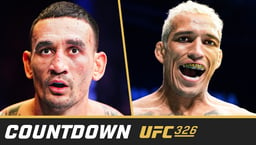
Issue 097
January 2013
Gareth A Davies MMA and Boxing Correspondent for The Daily Telegraph, London, asks should fighters care for silverware?
A fighter’s hand is raised following 15 minutes of war. Then we hear this: ‘I do this for the fans… for you guys. I do it for all you here. Thank you.’ We’ve heard it again and again. It’s like a mantra.
So when a fighter earns a fan-based award, through voting, it should be the ultimate prize. But how are awards perceived by fighters? What does it mean to them? Does it result in endorsements, sponsors? How about monetarily?
In 20 years of reporting on fight sports, I’ve found the popularity – or the peoples’ vote – has been a ringing endorsement for those who pit their mind and body against another human being for the entertainment of others. When it comes to market gain, some fighters capitalize on it. Others don’t. The bottom line, though, is that an award can mean as much as a title.
One prominent US publicist, who works with both MMA fighters and elite sportsmen further afield, told me that his experience of how sportspeople take on board the recognition of an award can differ enormously.
Some awards, clearly, are more prestigious than others, but he made an interesting observation. “It really varies from individual to individual. Putting aside the perception of what the particular award may be, I’ve worked with athletes who don’t care about individual awards as long as they are winning championships,” he relays to me.
“Their feeling is that the other stuff will come if it’s deserved… Then there are others who absolutely want to win every award known to man to leave a stronger legacy of their greatness. Michael Jordan, for example, wanted to win the championship, but he wanted to be the MVP, too… he’s one of those who wanted it all. But some don’t care one bit.”
The same publicist does, however, believe his clients should be aware of the benefits it offers them, whether the fighter feels a deep, internal glow from the award or not. The theory runs that if awarded, they should show on time, pick it up, and be gracious. After all, it’s about recognition.
“It does help to build that athlete. It means he or she is getting recognized,” he adds. “You are trying to market him/her and it shows there is a credible relevance to what that fighter is doing on a worldwide stage.” Ronda Rousey is a case in point.
When the Fighters Only World MMA Awards shortlists were announced last month, ‘Rowdy’ stole the headlines with the news that she had been nominated in four categories. For Rousey, it did two things: increased her profile in a market with few credible/followed female fighters. And/or made Rousey into the clear standard bearer for the female sport in 2012. Previously, it was arguably Cris ‘Cyborg’ Santos who held that moniker.
Another who sees the benefit of leverage through an award is Jon Bier, president of Industry Fiend. He’s one of the new breed of MMA publicists who have switched, in his case from Saatchi and Saatchi, to a more full-time role in mixed martial arts. Bier says that awards must matter to MMA fighters if they are worth their salt.
“Awards should matter more to MMA fighters than boxers, for example.” And I agree with him; the reason is self-evident. Top-level boxing is now purely about ‘prizefighting’ whereas MMA is more about being the best fighter. Recall how many times boxers give up belts to have the ‘money’ fight? The economics in the two sports differ enormously.
“The award to the MMA fighter,” reckons Bier, “is a sign you are the best fighter with the fans. The fighter who holds that award, that accolade, takes gold.” Correct, in my book. All fighters want to hold the top belts, but the recognition and adulation from fans drives them. Bottom line is that the fighters love ’em.
For example, take one fighter from the shortlists in this year’s World MMA Awards: Dustin Poirier. Poirier could well win ‘Fight of the Year’ with the fans in a fight he lost, against the ‘Korean Zombie.’ Poirier wears his soul on his sleeve and goes into a fight giving everything. But he will get an award for being involved in the most devastating (negative) fight of his career. He fought like a man – and got beaten. Yet the adulation of the fans means so much more.
“The bottom line is that by winning an award you are appealing to a brand who, in turn, want that fighter because through their action they appeal to the 18 to 34 male market,” reasons Bier.
The publicist quoted earlier concurs. “Brands are all about exposure, and the company want to be exposed to that. There are world champions out there that don’t get recognized as much as others in their same event. Awards help with getting marketing deals, appearances and so on. Financially the rewards may be smaller in the MMA world than in some of the big brand sports, but it’s definitely there.”
...









